In today’s fast-paced world, finding moments of relaxation and promoting overall well-being is essential for maintaining a healthy lifestyle. One effective and natural way to achieve this is through the use of essential oils. Derived from plants, essential oils have been used for centuries for their therapeutic properties. In this article, we will explore the benefits of essential oils for relaxation and how they can contribute to our overall well-being. From reducing stress and anxiety to improving sleep quality and enhancing mood, essential oils offer a holistic approach to self-care and rejuvenation.
More: Wanted to download Odisha Magazines, visit here
It is important to note that essential oils should be used with caution and diluted properly before application. Some oils may cause skin irritation or allergic reactions, so it is advisable to perform a patch test before using them topically. Additionally, pregnant women, individuals with certain medical conditions, and children should consult with a healthcare professional before using essential oils.
Section 2: Reducing Stress and Anxiety :
One of the primary benefits of essential oils is their ability to reduce stress and anxiety. The aroma of certain oils can have a calming effect on the mind and body, promoting relaxation and a sense of well-being. Here are some essential oils known for their stress-relieving properties:
- Lavender: Lavender oil is widely recognized for its soothing scent. It can help reduce anxiety, promote better sleep, and alleviate symptoms of stress-related disorders.
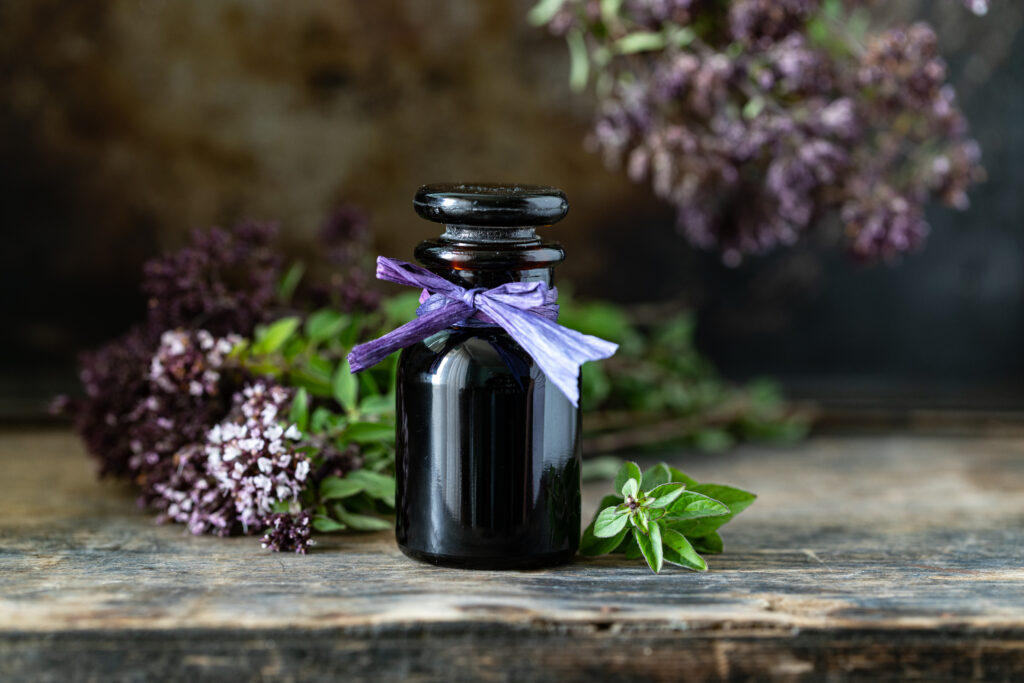
- Bergamot: Bergamot oil has a citrusy aroma that can uplift the mood and relieve anxiety. It is often used in aromatherapy to promote relaxation and reduce stress.
- Chamomile: Chamomile oil has a gentle, floral scent known for its calming effects. It can help reduce anxiety, promote relaxation, and improve sleep quality.
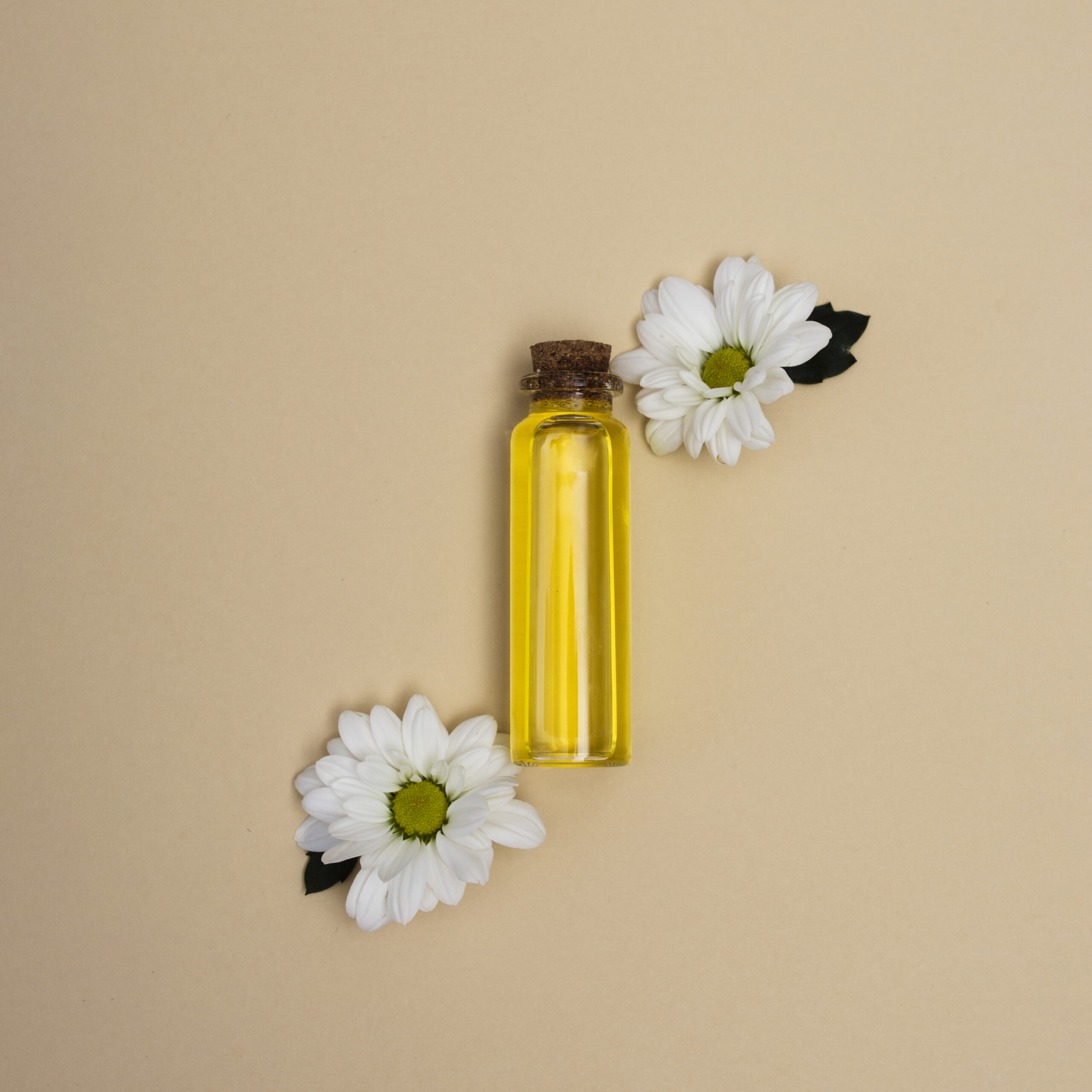
- Ylang-Ylang: Ylang-ylang oil has a sweet, floral fragrance that can help reduce stress and promote a sense of calmness. It is often used in aromatherapy to alleviate anxiety and enhance mood.
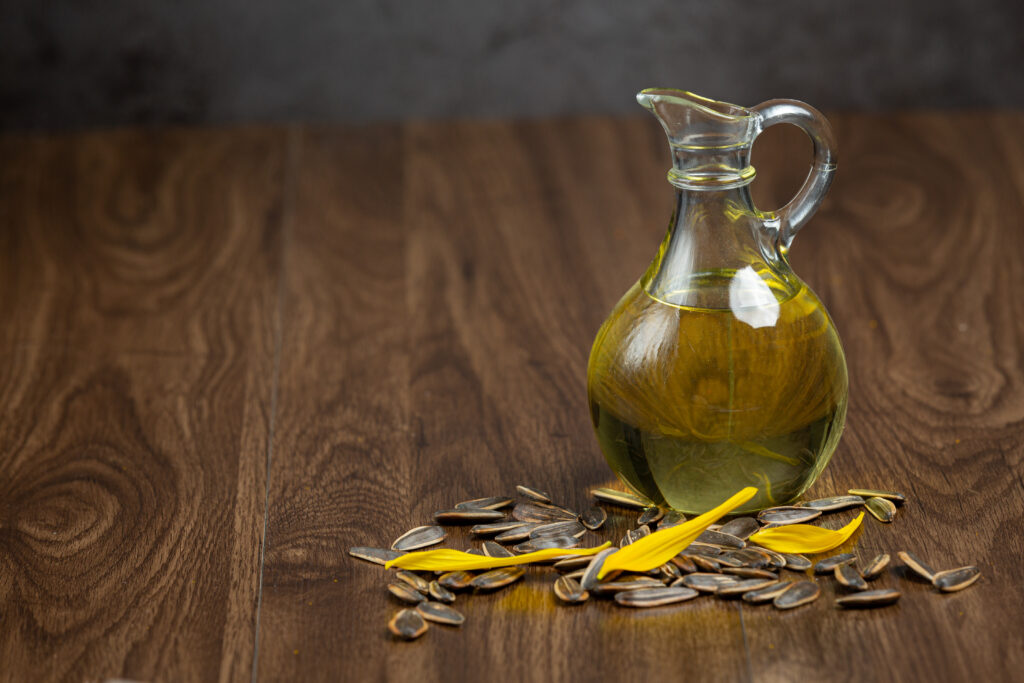
Section 3: Improving Sleep Quality :
Getting adequate and restful sleep is crucial for overall well-being. Essential oils can be beneficial in promoting better sleep quality by creating a relaxing environment and soothing the mind. Here are some essential oils known for their sleep-enhancing properties:
- Roman Chamomile: Roman chamomile oil has a mild, apple-like scent that can help calm the mind and induce relaxation. It is often used to promote better sleep and relieve insomnia.
- Vetiver: Vetiver oil has an earthy, grounding aroma that can help quiet the mind and promote deep sleep. It is particularly useful for individuals experiencing racing thoughts or restlessness at night.
- Sandalwood: Sandalwood oil has a woody, warm scent that can create a serene atmosphere conducive to sleep. It can help relax the mind and promote a sense of tranquility.
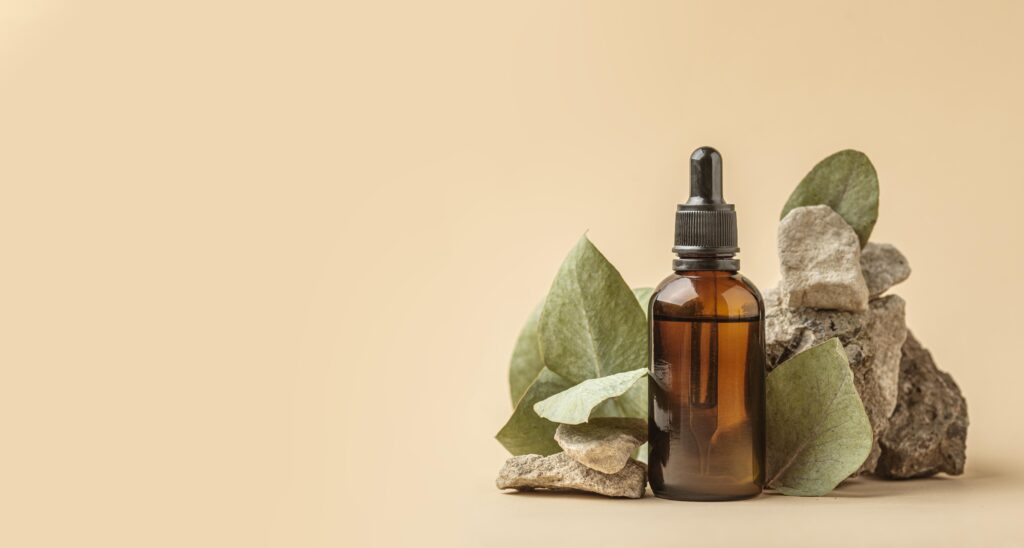
- Cedarwood: Cedarwood oil has a comforting, woodsy aroma that can help promote relaxation and support a peaceful sleep environment. It is often used to alleviate insomnia and promote a restful night’s sleep.
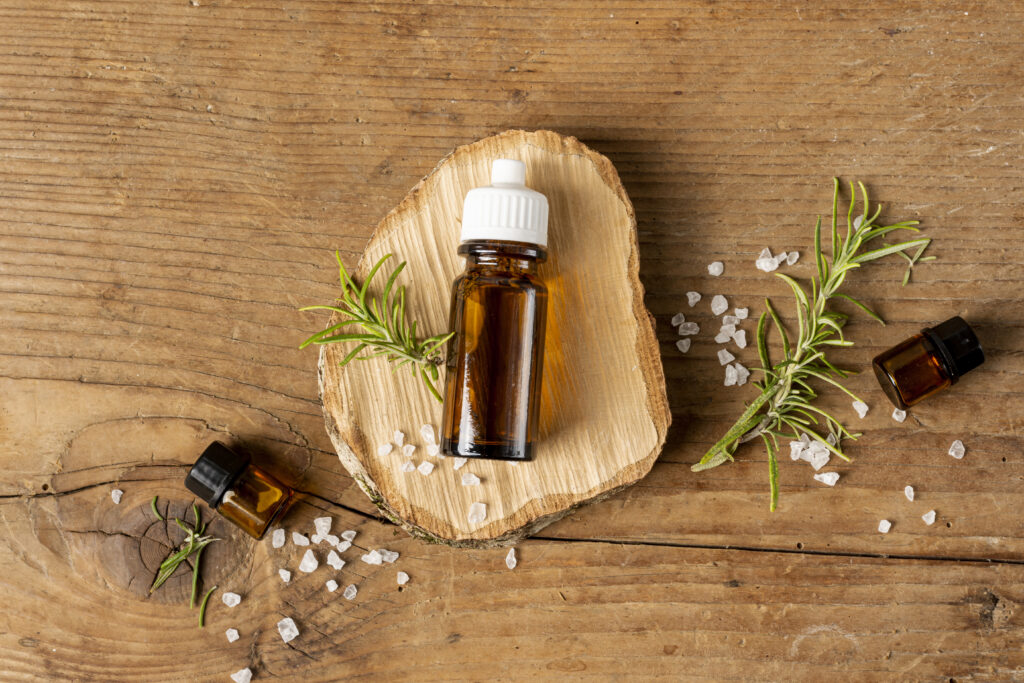
Section 4: Enhancing Mood and Emotional Well-being :
Essential oils have the power to influence our emotions and enhance our mood. The aromatic compounds in certain oils can stimulate the brain’s limbic system, which is responsible for emotions and memories. Here are some essential oils known for their mood-enhancing properties:
- Sweet Orange: Sweet orange oil has a bright, uplifting scent that can help boost mood and promote feelings of happiness. It is often used to alleviate symptoms of depression and anxiety.
- Peppermint: Peppermint oil has a refreshing, invigorating aroma that can help improve focus, mental clarity, and uplift the mood. It is often used to combat fatigue and enhance cognitive performance.
- Rosemary: Rosemary oil has an energizing, herbal scent that can help improve mood and mental alertness. It is often used to reduce stress and promote a positive mindset.
- Lemon: Lemon oil has a fresh, citrusy fragrance that can help uplift the mood and promote a sense of well-being. It is often used to alleviate symptoms of anxiety and depression.
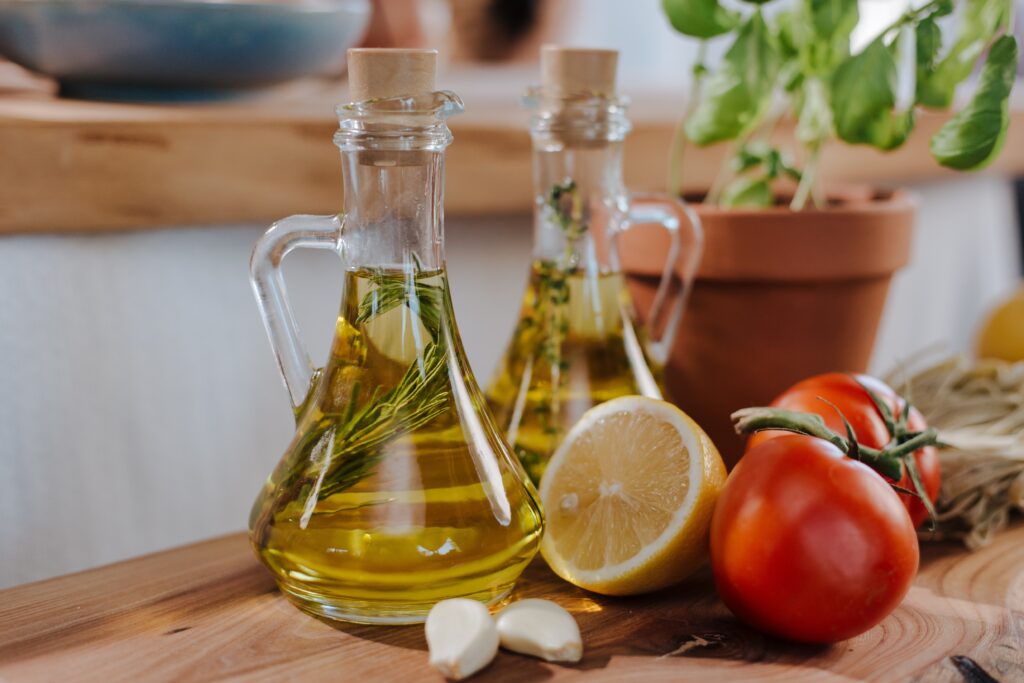
Section 5: Methods of Using Essential Oils :
There are various ways to enjoy the benefits of essential oils. Here are some popular methods of using essential oils for relaxation and overall well-being:
- Aromatherapy Diffusion: Use an essential oil diffuser to disperse the aroma throughout a room, creating a relaxing and inviting atmosphere.
- Topical Application: Dilute essential oils with a carrier oil, such as coconut or jojoba oil, and apply them to the skin through gentle massage or targeted application.
- Inhalation: Add a few drops of essential oil to a tissue or handkerchief and inhale deeply. Alternatively, create a steam inhalation by adding a few drops of oil to hot water and inhaling the steam.
- Bathing: Add a few drops of essential oil to a warm bath and soak for a soothing and aromatic experience.
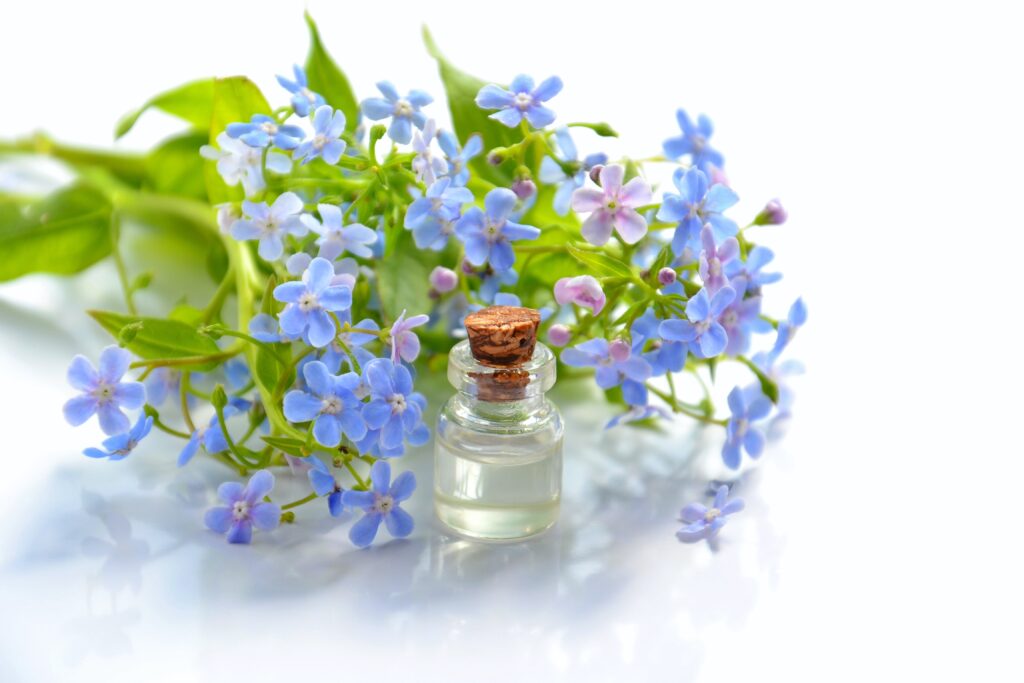
More:Read About Natural Remedies for Hair Care and Preventing Hair Loss
Essential oils offer a natural and holistic approach to relaxation and overall well-being. From reducing stress and anxiety to improving sleep quality and enhancing mood, these plant-derived oils have a wide range of therapeutic benefits. However, it is important to use essential oils safely and responsibly, following proper dilution guidelines and consulting with a healthcare professional when necessary. By incorporating essential oils into our self-care routines, we can create moments of tranquility, promote relaxation, and nurture our overall well-being in today’s hectic world.
FAQ For Benefits Of Essential Oils For Relaxation And Overall Well-being
What are essential oils?
Essential oils are highly concentrated plant extracts derived from various parts of plants, such as leaves, flowers, bark, or roots. These oils capture the natural aroma and therapeutic properties of the plants from which they are obtained. They are commonly used in aromatherapy for their potential benefits to relaxation and overall well-being.
How can essential oils promote relaxation and well-being?
Essential oils can promote relaxation and well-being through their aromatic properties and potential effects on the body and mind. When inhaled, the scents of essential oils can have a positive impact on mood, reducing stress, anxiety, and promoting a sense of calm. Some essential oils may also have direct physiological effects, such as promoting better sleep, relieving muscle tension, or supporting immune function.
Which essential oils are best for relaxation?
Different essential oils have varying properties, but some commonly used ones for relaxation include lavender, chamomile, bergamot, ylang-ylang, and clary sage. Lavender, in particular, is well-known for its calming effects and is often used to promote relaxation and improve sleep quality. It’s essential to find scents that resonate with you personally, as individual preferences and responses to aromas can vary.
How can use essential oils for relaxation?
There are several ways to use essential oils for relaxation. You can add a few drops of your chosen oil to a diffuser or humidifier to fill the air with a soothing aroma. Alternatively, you can mix essential oils with carrier oils such as coconut or almond oil and use them for massage or apply them to pulse points. You may also add a few drops of essential oil to your bathwater or use them in homemade skincare or bath products. It’s important to dilute essential oils properly and follow usage guidelines to ensure safety and effectiveness.
Are there any precautions or potential side effects when using essential oils?
Essential oils are generally safe to use when used properly, but there are a few precautions to keep in mind. Some essential oils may cause skin irritation or sensitization, so it’s crucial to dilute them before applying them to the skin and perform a patch test beforehand. Additionally, certain essential oils may not be suitable for pregnant women, babies, or individuals with specific health conditions. It’s essential to do your research, consult a qualified aromatherapist, or seek medical advice if needed.
Can essential oils replace medical treatments?
While essential oils can offer relaxation and potential benefits for overall well-being, they should not replace medical treatments prescribed by healthcare professionals. Essential oils are not intended to diagnose, treat, or cure any medical conditions. If you have specific health concerns, it’s important to consult with a healthcare provider to determine the best course of action. Essential oils can be used as complementary support alongside medical treatments, but they should not be seen as substitutes.

